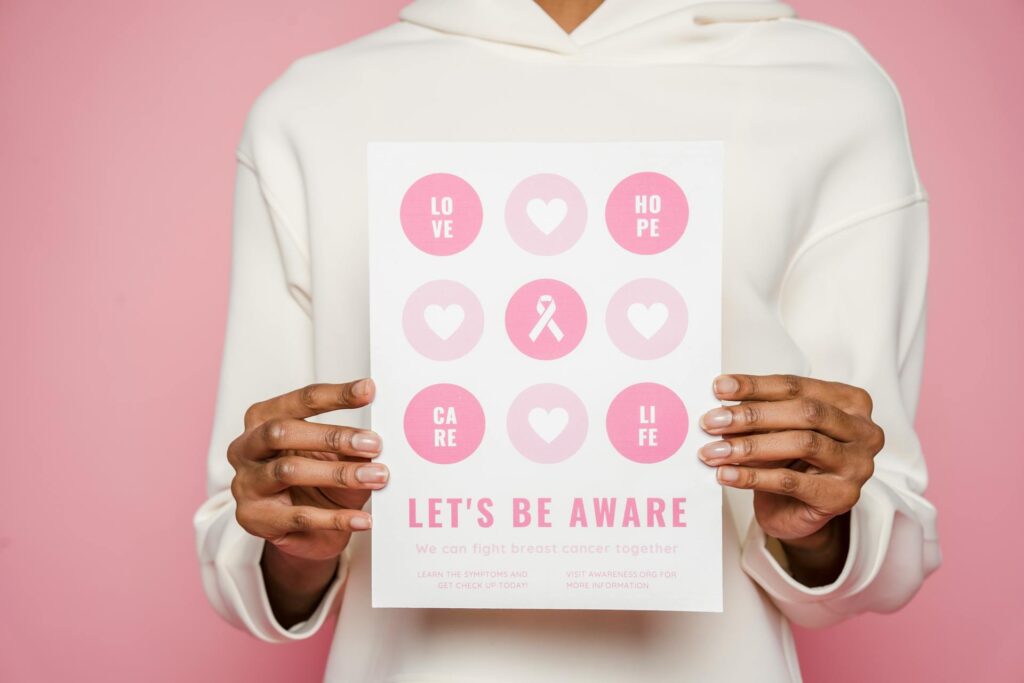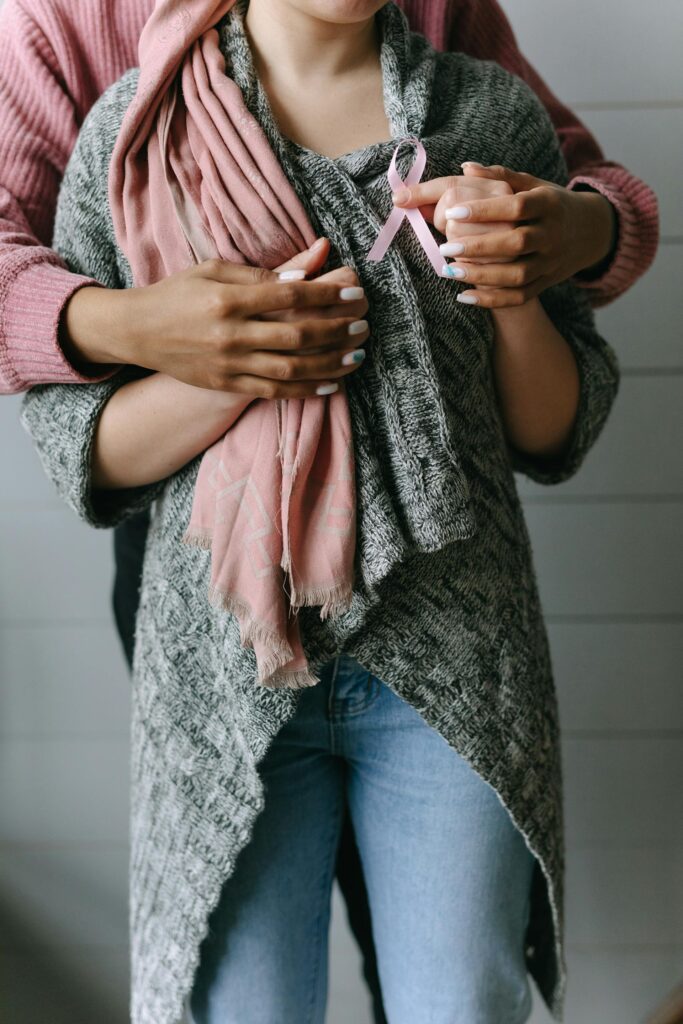October is nearly over, and so is Breast Cancer Awareness Month — but this crucial conversation shouldn’t end here. At The Urban Herald, our mission extends beyond awareness; we’re committed to empowering our community to take proactive steps in their breast health journey, emphasizing prevention, self-care, and early detection.
Breast cancer awareness and beyond: why it matters all year long
Breast cancer remains the most frequently diagnosed cancer among women globally, accounting for nearly 30% of all new cases each year. While October shines a spotlight on breast health, long-term vigilance and proactive healthcare steps can significantly impact outcomes. Moving beyond awareness means embracing preventive strategies and making health screenings a priority, not just in October but all year round.

Proactive steps for year-round breast health
Routine screenings and self-exams
Regular mammograms and monthly self-exams play an essential role in early detection. Familiarity with your body helps you notice subtle changes early on, which can be life-saving. Experts suggest annual mammograms beginning at age 40, although individual risk factors may shift this timeline.
Lifestyle habits for prevention
Reducing alcohol intake, maintaining a healthy weight, and engaging in regular physical activity all contribute to lowering breast cancer risks. Eating a balanced diet, rich in fruits, vegetables, and whole grains, supports overall health and resilience against many diseases, including cancer.
Access to support resources
Emotional well-being is equally critical. Cancer support groups, counselling, and palliative care are resources available to help those affected by breast cancer and their families manage stress and navigate treatment challenges. Programs like the National Breast Cancer Foundation’s “Helping Women Now” initiative provide free educational materials to bolster breast health understanding.
Community engagement
Community support plays a vital role in breaking down the stigma surrounding breast health and fostering open conversations. Encouraging shared stories and creating supportive environments empower individuals to prioritize breast health as part of their self-care.
Your health, your responsibility — Let’s keep the dialogue going
Taking a proactive approach to breast health shouldn’t end when the pink ribbons and awareness campaigns fade from view. Real change happens when we carry these lessons into our everyday lives—prioritizing screenings, living healthier, and engaging in open, supportive discussions about breast health throughout the year.
It’s also vital to recognize that breast cancer does not only affect women. Although the disease is significantly more common in women, approximately 1% of all breast cancer cases occur in men, often going undetected due to a lack of awareness and stigma around male breast cancer. Men, too, should familiarize themselves with breast health basics, conducting regular self-exams and consulting a healthcare provider if they notice any changes, such as lumps, skin dimpling, or nipple discharge. Increased awareness can lead to earlier diagnoses in men, as well, ultimately improving outcomes and survival rates.
At The Urban Herald, we believe that health is a collective responsibility. Breast cancer touches families, communities, and societies—reminding us that no one is exempt from the ripple effects of health challenges. Together, we can foster an environment where proactive health decisions are encouraged and supported, where breast health conversations are inclusive of all genders, and where early detection and prevention are standard parts of self-care.
As we move forward, let’s keep advocating, educating, and supporting one another. By maintaining this commitment beyond October, we not only honour those affected by breast cancer but also help build a future where awareness, prevention, and health equity are central pillars of our society.

Get help, get informed, make a difference
Here are some reputable resources where people affected by breast cancer, as well as their loved ones, can find support, educational resources, and opportunities to donate to ongoing breast cancer initiatives:
North America
- National Breast Cancer Foundation (NBCF): U.S.-based, NBCF offers support services, education, and resources for those affected by breast cancer. https://www.nationalbreastcancer.org
- Canadian Cancer Society: Provides breast cancer support, research funding, and patient navigation services across Canada. https://cancer.ca/en/
- Breast Cancer Foundation New Zealand: Focused on support, research, and advocacy, including a 24/7 breast cancer helpline. https://www.breastcancerfoundation.org.nz
- Men’s Breast Cancer Coalition (MBCC): MBCC is dedicated to raising awareness about male breast cancer and providing support to men diagnosed with this disease. https://mbcglobalalliance.org
Europe
- Irish Cancer Society: The Irish Cancer Society provides extensive support services for breast cancer patients, including a free helpline, counselling, and financial support options, as well as opportunities to contribute to breast cancer research. https://www.cancer.ie
- Breast Cancer Ireland: This organization focuses on breast cancer research, education, and awareness across Ireland. Breast Cancer Ireland also supports initiatives like the “Breast Health Education and Awareness Programme” and offers ways to donate or volunteer. https://www.breastcancerireland.com
- Europa Donna: The European Breast Cancer Coalition – Operates across multiple European countries, focusing on breast cancer advocacy, awareness, and support. https://www.europadonna.org
- German Cancer Aid (Deutsche Krebshilfe): Provides patient support, resources, and research funding across Germany, including a national breast cancer program. https://www.krebshilfe.de
- Men’s Breast Cancer Coalition (MBCC): MBCC is dedicated to raising awareness about male breast cancer and providing support to men diagnosed with this disease. https://mbcglobalalliance.org
United Kingdom
- Breast Cancer Now: The UK’s leading breast cancer charity, offering support resources, research funding, and the “Someone Like Me” peer support program. https://breastcancernow.org
- Macmillan Cancer Support: Provides extensive cancer support services across the UK, including financial, emotional, and medical guidance for breast cancer patients. https://www.macmillan.org.uk
- The Pink Ribbon Foundation: UK charity that funds projects to support breast cancer patients and promotes awareness. https://www.pinkribbonfoundation.org.uk
South Africa
- CANSA (Cancer Association of South Africa): Offers education, support services, and screening programs for breast cancer across South Africa. https://cansa.org.za
- Reach for Recovery South Africa: A volunteer-driven support program providing resources and support for breast cancer patients and survivors. https://www.reach4recovery.org.za
- PinkDrive: South Africa’s health non-profit provides mobile mammography units for early breast cancer detection in under-resourced areas. https://pinkdrive.org
Oceania
- Breast Cancer Network Australia (BCNA): A leading support network for Australians affected by breast cancer, offering educational materials, community support, and a helpline. https://www.bcna.org.au
- Cancer Council Australia: Provides cancer-related support services, information, and funding for research across Australia. https://www.cancer.org.au
- Breast Cancer Foundation New Zealand: Besides supporting Kiwis in cancer treatment, it provides resources for early detection and survivorship care. https://www.breastcancerfoundation.org.nz
These resources not only provide essential support services but also accept donations to continue their work in research, patient care, and spreading awareness. Whether you’re looking to support someone affected by breast cancer or contribute to the cause, these organizations make a tangible impact on breast health and breast cancer research.



